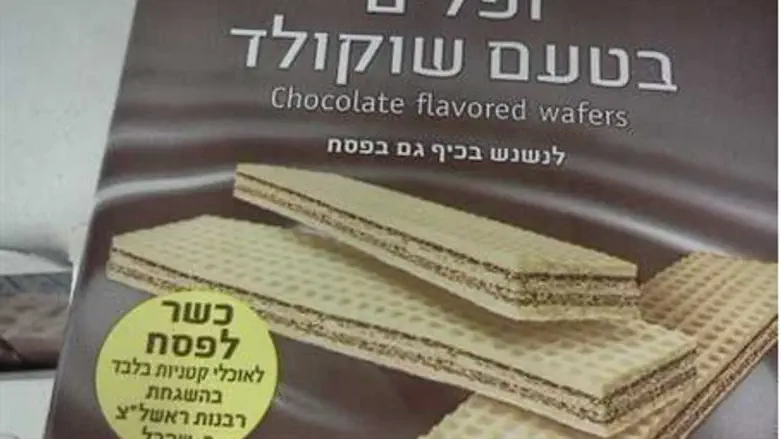
In an era in which "almost everything" has a kosher for Passover version, the Chief Rabbinate has been struggling to come up with guidelines that will prevent less-knowledgeable shoppers from making a mistake and buying a non-kosher for Passover product on the holiday.
Among those guidelines is a rule whereby cakes, candies, cookies, and other snack items that carry the same name on Passover as they do during the rest of the year be packaged and/or shaped differently, in order to provide shoppers with a clear indication that the product they are buying is not the same one they buy all year long, despite the fact that it carries an identical name – as well as indicating that the product with the familiar shape/packaging/texture is non-kosher for Passover.
The rule is a condition for receiving supervision from the Rabbinate for Passover products. Under Israeli law, a product cannot be marketed as kosher unless it is approved by the Rabbinate.
While most companies accept and follow the rule, this year Israel's largest supermarket chain has decided that it need not do so. The chain, Supersol, is marketing a line of kosher for Passover chocolate wafers – a favorite snack of Israelis – in the same shape, size, texture and packaging that they are sold all year long. The wafers are made of potato starch, not wheat, so they are kosher for Passover, under supervision of the local rabbinate in Rishon Lezion.
However, when the Chief Rabbinate found out about the product, they protested, saying that Supersol violated the rules, and has inadvertently increased the possibility, perhaps likelihood, that non-observant Israelis will buy non-kosher for Passover wafers, or even get the idea that the wafers they already have in their homes are fine for Passover use.
Generally, the Rabbinate would demand that a retailer remove such products from their shelves. In response to a query by Arutz Sheva, Supersol said in a statement that it had cleared the packaging with Chief Ashkenazic Rabbi Yonah Metzger, who gave them permission to continue selling the product. The Rabbinate refused to comment.